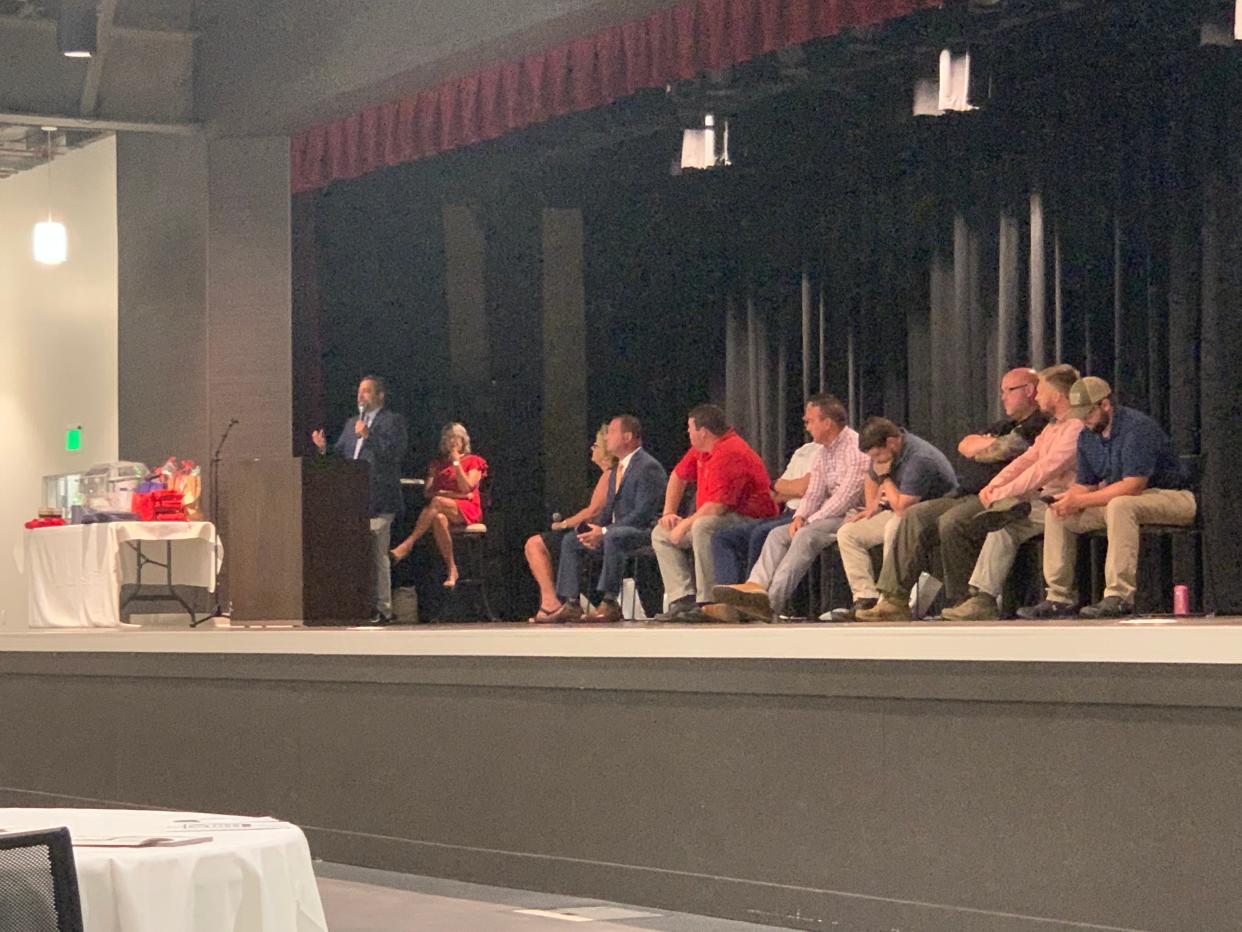Credit unions join forces to host first Fight Fraud Workshop

Roughly 5.7 million fraud reports are made annually in the United States, with an average financial loss of $500. According to the Federal Trade Commission, five Alabama cities rank in the top 50 nationally in fraud cases per 100,000 population, including Tuscaloosa (first in 2021 with 3,712 reports per 100K and, so far, again in 2022 with 582 reports), Montgomery (8th) and Gadsden (27th).
“There’s a lot of fraud that goes on that we have to deal with (involving) our members each and every day,” said Gina Chambers of Alabama Teacher’s Credit Union. “The topic of fraud is something that is very important to us, as it has gone on for a long time and continues to increase, especially after COVID-19.”
It’s why three of Etowah County’s credit unions partnered this month on the inaugural Fight Fraud Workshop, an initiative created to help educate people about warning signs for fraud and what to do if they believe their information is compromised.
“Maybe the people here have not been subjected to fraud, but if they can help someone else they are overhearing at church or other gatherings, and see that they are vulnerable and believing what they are seeing, it will help people be not as likely to fall for these scams,” Chambers said.
The credit unions brought in two different presenters, followed up by a question-and-answer panel on behalf of local fraud investigators in Etowah County.
Common scam methods
Randal Gilliland, a certified computer forensic examiner at the East Metro Area Crime Center, shared different ways fraudulent scams can be detected and what damage they could do if they are accepted onto someone’s device. He cited the “huge uptick” he’s seen in financial fraud cases within the past few years.
“Out of everyone in the entire world, 63% of the population is connected to the Internet in some way, whether it be through social media or other methods,” Gilliland said. “It is very easy for those wanting to commit fraud to get your information — from scam emails with fraudulent links, to fake social media accounts of friends and family.”
Gilliland detailed some of the most common scams he’s investigated, such as phishing techniques to ransomware where hackers will hold information or technology hostage until they get paid a certain amount of money.
“If you do pay them to get your information back, there is no surefire way of getting that information back,” he said. “This is because they can easily turn around and continue to hold your information hostage until you pay them even more money. It will then become a matter as to how much your information is worth (to) you.”
Gilliland then gave safety tips to attendees as to what to look out for when it comes to sharing information online, such as being careful of links that come attached to emails and keeping passwords strong with varying symbols, letters and numbers that will make them near impossible to guess.
'The fantasy of fraud'
Nick Vonderau of the Alabama Securities Commission also gave some statistics on fraud, such as the fact that while younger generations are more likely to be victimized, older generations are more likely to lose more money in scams. He shared recent stories of scams in the area, such as a Ponzi scheme recently uncovered in Huntsville.
“There was a guy that was promising people that if they paid him $9,000, he would set up a greenhouse that would let them grow tomatoes for businesses in need and they would get a return of up to $40,000,” Vonderau said. “In six months, he managed to make $1.2 million off of nearly 300 families in the area.”
Despite all of the scamming the man did, Vonderau said those who bought into the scheme still believed in him, saying they all just needed a bit more time to process and they would get the money.
“People want to believe in the ‘fantasy of fraud’ to the bitter end. They genuinely believe that if they buy into this and pour their time, money and efforts in, that it will all work out and the reward will be worth it, when that is never the case,” he said.
How to check whether you are a victim
Vonderau gave tips for people to see if they have been victims of fraud, such as going to a website set up by the government, annualcreditreport.com, to check whether they have been victimized at any point. He said the website would allow them to check weekly for free up until the end of the year, with the recommendation to check annually moving forward.
“Don’t buy into the scams that are out there, especially if they encourage you to pay with things such as gift cards or cryptocurrency,” he said as a final piece of advice. “No official business will take money from you via those methods, especially not over the phone or by text.”
Joining ATCU in hosting the event was Family Savings Credit Union and WinSouth Credit Union. “As credit unions, we are here to collaborate with one another and educate those around us because we are for the community,” Chambers said. “It’s the first and foremost thing we have to do to help our members.”
Chambers said similar events may be planned based on community response.
This article originally appeared on The Gadsden Times: Fight Fraud Workshop: Local credit unions join forces to host shop

